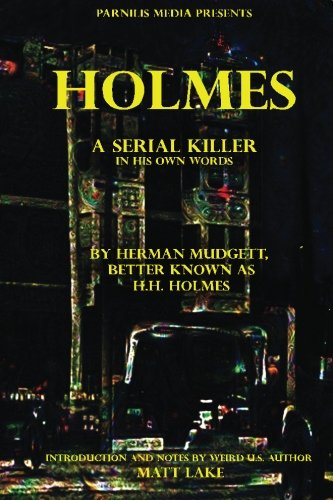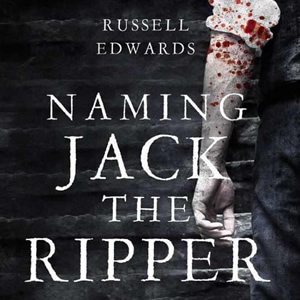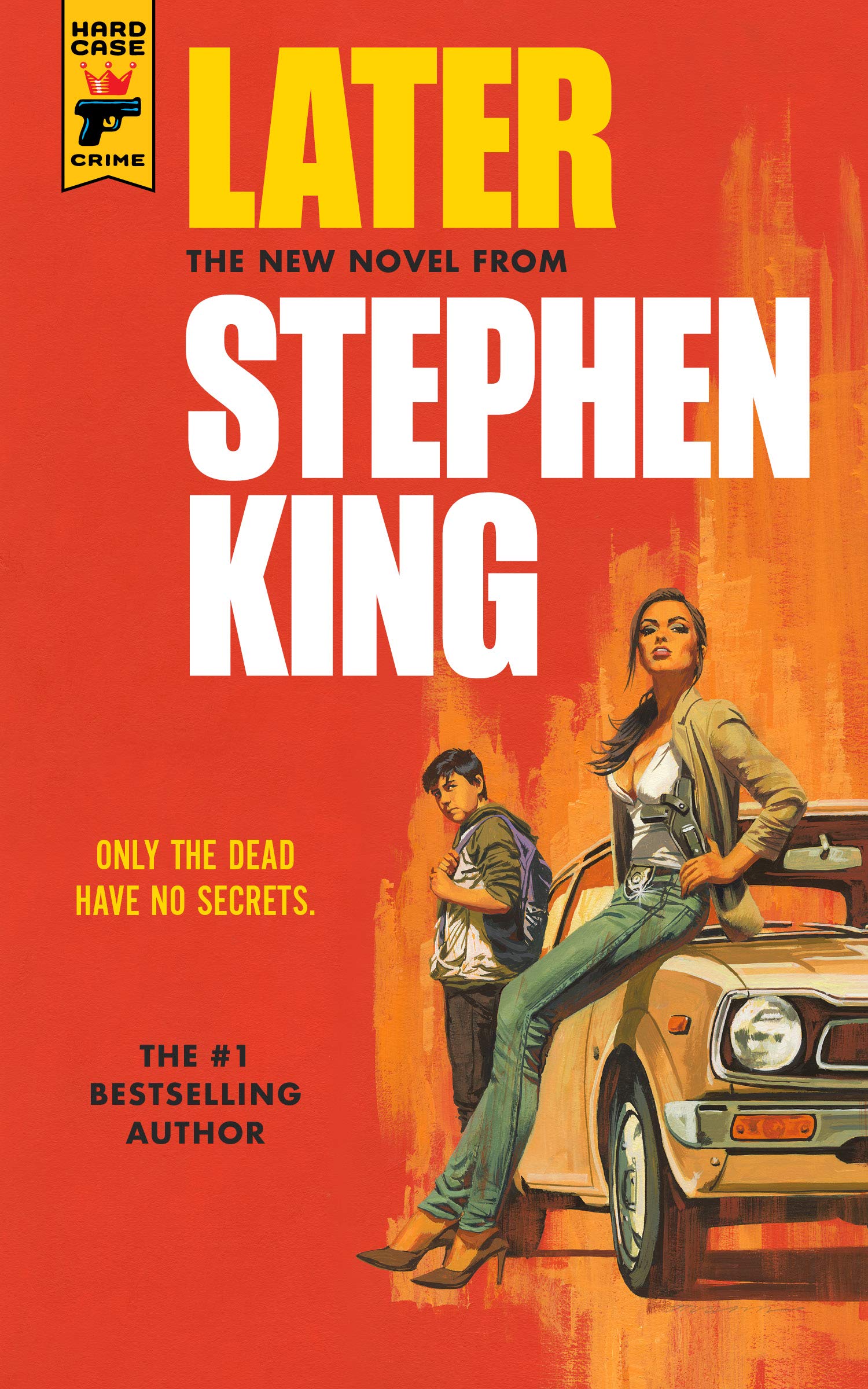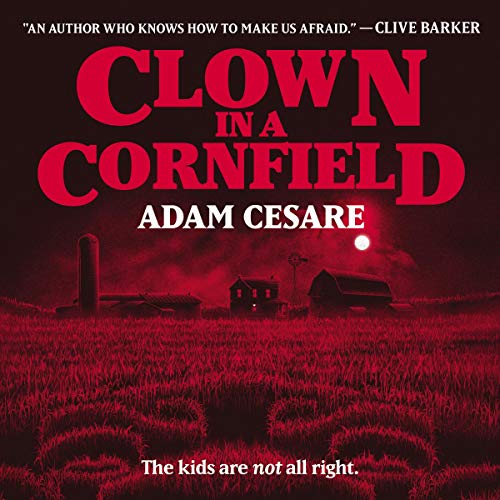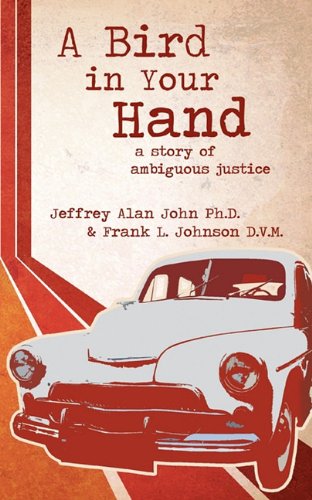
True Crime Studies: “A Bird in Your Hand” is probably the borest true crime book I’ve ever read
More Videos
Published
4 years agoon
By
Rachel RothThis little book was probably put together when one of the two authors, Frank L. Johnson to be exact, started looking for an excuse to talk about his father and hometown of Xenia, Ohio. A teeny tiny little town where major crime almost never happens. He then pulled out the first major homicide to happen during his father’s career as a judge and used it as the focus point in his passionate trek of Xenia, making for a book that’s terribly miscast in the genre it’s meant to stand in. A Bird in Your Hand: A Story of Ambiguous Justice is exceptionally dull. I don’t want to be harsh, but every chapter felt like one of my father’s many tales about Tumeric.
The biggest flaw of this book is that it feels like a summarization of something bigger. It’s as if they took a much longer, more detailed book that doesn’t exist, and turned it into a pamphlet. Despite being promoted as a true crime story, it shows very little of the actual crime. It skims over it along with the people involved, instead choosing to spend the majority of its time in court and on background details.
The book presents the case of Clarence Earl Tucker and Ernie Evans, two troubled youths that had a habit of getting into mischief. After going on a joy ride with a stolen car, bootlegging some liquor, and just doing what teenage boys do, they got pulled over by some police officers. Inside their stolen vehicle were a shotgun and a pistol, both damaged and neither intended for premeditated violence. One they were planning on selling and the other on repairing and also maybe selling somewhere down the line.
In the heat of the moment, though, Evans uses the pistol to shoot and kill an officer. There’s a brief moment of chaos in the street and within minutes, it’s over. There are three men down and another just standing there with his arms up. Clarence Tucker, though not completely free of a guilty conscience, was innocent of anything that had to do with the shootout, and this is the fact that A Bird in Your Hand by Frank Johnson and Jeffery Alan John, wants to talk about. Keep in mind this book is more interested in background details — the lawyers, the families of the lawyers, the judges, Ernie Evans’s girlfriend, and the author himself. The intended focus, which is Tucker and the murder he was an accomplice of, often goes unseen like a ghost in the background.
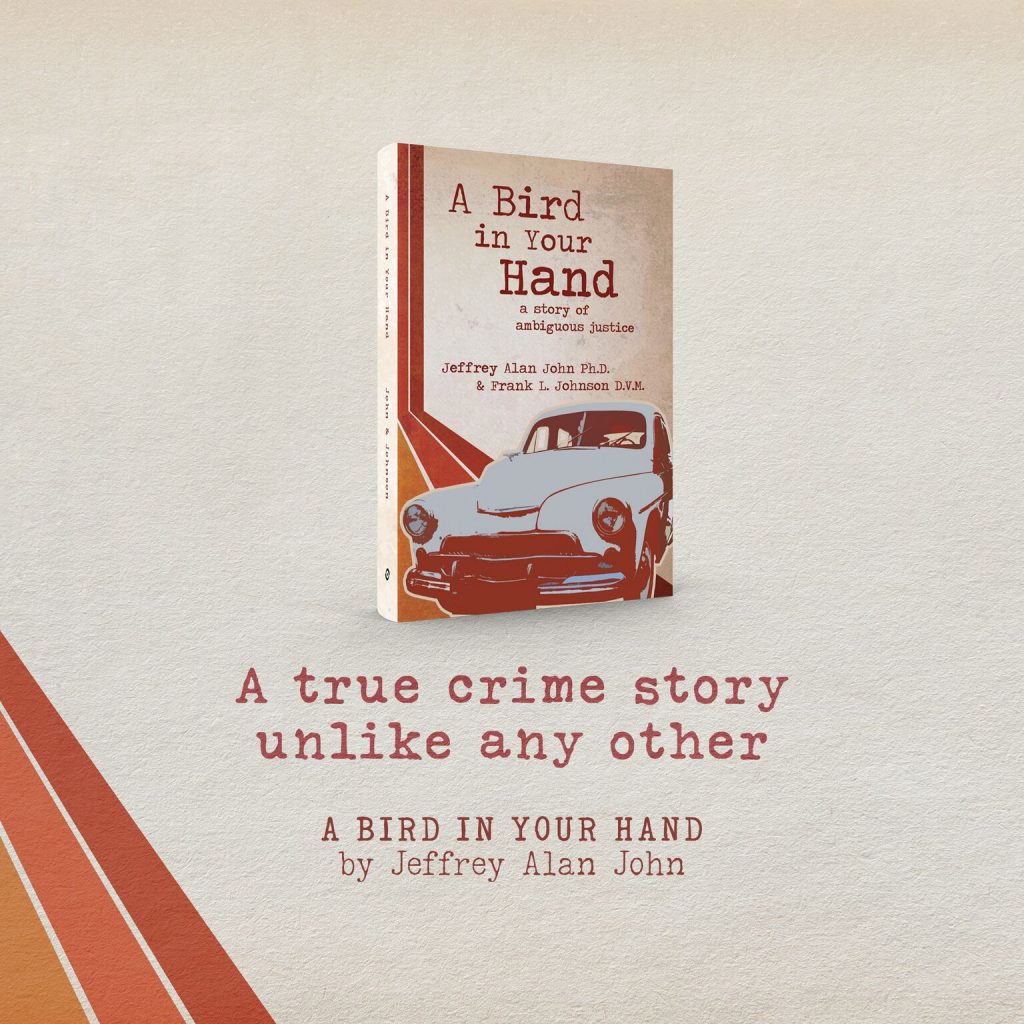
Tucker gets put away for life after the local police force him into a fake confession and then sway the court in their favor. Years after being sent away, he seeks rightful justice and this, what comes in near the midway point towards the very end of the book, is supposed to be the focal point of the story. That’s the “ambiguous” justice the book is naming in its title — A Bird in Your Hand: A Story of Ambiguous Justice.
This book has an unfortunate identity complex. It thinks it’s more unique than it actually is. “A story of ambiguous justice,” “a true crime story unlike any other,” but is it? Not to say that the death of a man, officer Earl Confer, or that the punishment of an innocent man isn’t tragic but nothing about this case stands out among the millions of other similar crimes that have occurred both before and after it. This is something that happens all the time in both police work and the criminal justice system.
The point A Bird in Your Hand is trying to make is that justice is not blind and is open to more than one interpretation, but it sure does take its sweet time getting there.
Verdict
My opinion towards A Bird in Your Hand might possibly be influenced by my initial perception of it. Perhaps if I’d known that the book focused more on the city of Xenia and the author’s father, Judge Johnson, then I might’ve received it a bit more warmly.
It actually wasn’t as bad as I’m making it out to be because it had heart, an attempt to tell a genuine story that unfortunately gets buried under an excessive amount of background details, with an excuse for Johnson to mention his parents every three pages. When it comes down to it, I think Johnson and his co-author, Jeffery Alan John, had a lot to say, a lot to share, but had no idea how to do it. Large amounts of facts and details are dumped on you, usually, all at once, and written in a summarizing format. It gives a lot of information with as little space as possible, cramming it all in 236 pages.
If it had focused entirely on Tucker, or him and Evans, are gone in the fold and just discussed Judge Johnson the way the book seemed to have liked to, A Bird in Your Hand could have been a great read. It had the ingredients –small town, discrimination, a corrupt justice system, and a sympathetic young criminal — but it treated them like forgotten ghosts in their tour of Xenia.
 (2.5 / 5)
(2.5 / 5)
Rachel Roth is a writer who lives in South Florida. She has a degree in Writing Studies and a Certificate in Creative Writing, her work has appeared in several literary journals and anthologies. @WinterGreenRoth

You may like
-
My Summer Darlings: Murder, Mischief, Mayhem
-
True Crime Studies: A Serial Killer in His Own Words by H.H. Holmes
-
True Crime Studies: Naming Jack the Ripper by Russell Edwards
-
True Crime Studies: Another side of Ted Bundy is shown in Elizabeth Kendall’s ‘The Phantom Prince.’
-
Stephen King’s latest novel ‘Later’ is fun, but mediocre compared to his usual works
-
‘Clown in a Cornfield’ is my ‘Scream’ of slasher novels
Book Reviews
The Hotel: We’ll All Be There Soon.
Published
3 weeks agoon
March 17, 2025By
C M ReidDaisy Johnson’s, The Hotel is a collection of stories that tell the tale of a hotel built on cursed land. Originally written and recorded as a series for BBC Radio 4 in 2020, (you can find the recordings here https://www.bbc.co.uk/programmes/m000mrcg/episodes/player )
The fourteen-story collection was released in hardcover in 2021. Johnson’s prose is haunting, weaving together the stories of generations of families who have been tempted, forced, or serendipitously dumped at The Hotel. Most leave the message, “I’ll be there soon,” and many disappear from room 63.
- ‘The British literary heir to Stephen King’ Johanna Thomas-Corr, Sunday TimesA triumph of contemporary horror from the Booker Prize-shortlisted author, this collection of short stories will haunt you long after you turn the final pageA place of myths, rumours and secrets, The Hotel looms over the dark Fens, tall and grey in its Gothic splendour
- Built on cursed land, a history of violent death suffuses its very foundations –yet it has a magnetism that is impossible to ignore
- On entering The Hotel, different people react in different ways
Last update on 2025-03-17 / Affiliate links / Images from Amazon Product Advertising API
The Plot.
The Hotel tells the stories of the people who are drawn to The Hotel, or, more accurately, the ground the hotel is built on. The first story explains what we know about the hotel, its tendencies, moods, and … hobbies. We are then introduced to Mary Southgraves, ‘The Witch’, who comes to live with her husband on the land on which The Hotel will be built. The villagers in the pond drown her for predicting a sickness that takes the village children, (no this is not a spoiler she tells you she dies on the first page of her chapter.)
The proceeding chapters build upon this story. We meet the workers who are brought in to fill the pond to begin construction. A child of a guest in 1968 who meets another girl who may or may not actually be there. A maid who takes part in séances and Ouija board sessions. The stories progress through time into the present.
Highlights.
The haunting prose of The Hotel does the majority of the heavy lifting for this collection, which makes sense since it began as a podcast series. Johnson’s prose leans towards poetry, albeit more Poe than Keats.
The repetition of specific characters and family names throughout the different stories was intriguing, giving the stories links. These links trigger a sense of recognition for the reader. There is also a sense of anticipation, knowing what has happened to these families already, we wonder how much more they can withstand. The Hotel is like a curse following these families, but I think Johnson is commenting on lineage and the consequences of past actions. The sins of the father and all that.
- Fifteen highly original and darkly unsettling supernatural stories, performed by some of Britain’s finest actresses ‘This is what we know about The Hotel
- It is bigger on the inside than on the outside
- Do not go into Room 63
Last update on 2025-03-17 / Affiliate links / Images from Amazon Product Advertising API
Drawbacks.
These stories can get confusing at times and I think this is due to the briefness of the stories. It’s hard to keep track of a character that you have spent four pages with and remember them three stories later. I found myself having to stop and turn back to check if that person was who I thought they were. This pausing to turn back interrupts the reading experience. It pulls you out of the story and destroys the atmosphere that Johnson has worked to create.
The Final Take.
The Hotel was an interesting read. Johnson is a talented writer who has published a collection of linked stories that will keep the reader turning pages if only to find out the final fate of these families. That being said, it is obvious that the stories were initially written for a podcast. I’m not sure if it’s the way they are put together or… I don’t know, there’s just something ‘podcasty’ about them. As such I would recommend listening to the audio episodes (see the link above) over reading the book.
 (3 / 5)
(3 / 5)
On Halloween in 2016 Josh Malerman, author of Bird Box, released A House At The Bottom Of A Lake (gosh this is a hefty title!). Last week, I picked this slim book up off my library’s Adult Horror shelves, not knowing what to expect. What I got was a novella that should have been shelved in the teen lit section. Perhaps it is the rather weird underwater sex scene that precludes it from those shelves.
- From the New York Times bestselling author of Bird Box and Malorie comes a haunting tale of love and mystery, as the date of a lifetime becomes a maddening exploration of the depths of the heart
- “Malerman expertly conjures a fairy tale nostalgia of first love, and we follow along, all too willingly, ignoring the warning signs even as the fear takes hold
- ”—Lit Reactor The story begins: young lovers, anxious to connect, agree to a first date, thinking outside of the box
Last update on 2025-03-10 / Affiliate links / Images from Amazon Product Advertising API
The Plot.
When James asks Amelia out on a date during summer break, canoeing was the last thing that she expected. Borrowing his uncles canoe, James hopes he can show Amelia an exciting time, because he really likes this girl! The date starts well and the conversation, if stilted at times, is banter-ey and cool.
They head out on the first lake, but James has an idea that they might have a better time on the lake that joins to this one. It is quieter, no speed boats to show him up, they’ll be able to eat their picnic lunch in peace and quiet. When they arrive, though, they notice a tunnel, that may lead to a third lake. Eager to show Amelia that he is an exciting kind of guy, James heads through the tunnel.
Lo and behold, it is another lake! Albeit, a bit murky and deserted, but that’s alright. That is until they notice that beneath the bow of the boat is a tiled roof. Beneath that tiled roof is a whole house. What ensues is a summer of falling in love and exploring a sunken house that may not be as empty as they thought.
Highlights.
Malerman writing the internal monologue of an angsty seventeen-year-old on a first date is one of the most authentic things I’ve read for a long time. Even down to James worrying about revealing that his dad owns the hardware shop he works in. Scared that Amelia will think that is all he is going to do with his life.
The ending (which of course I cannot discuss here) was well done, although a little contrived and predictable. It felt as if it had been almost tacked on the end as an afterthought. Perhaps Malerman finished the story without the final chapter, but was encouraged to add that last bit to give readers some closure
- “A book that demands to be read in a single sitting, and through the cracks between one’s fingers
- There has never been a horror story quite like this
- Josh Malerman truly delivers
Last update on 2025-03-10 / Affiliate links / Images from Amazon Product Advertising API
Drawbacks.
Malerman is a good writer, we have seen this in the many novels he has released since Bird Box. A House At The Bottom Of A Lake did not meet the usual standard. There are many reasons I say this. The first is a lack of creativity in descriptive passages in this book. They all felt pretty drab and began to become repetitive by the end of the story. I don’t know how many, times Malerman compared the way that James and Amelia were moving under the water in their scuba suits as ‘Astronaut-like’ or ‘Astronaut-esque’ or ‘ Like he was walking without gravity’, but really can you find another comparison please because this one is all used up!
As I mentioned in the intro, this did feel like a YA novel. Not only because both of the main characters are seventeen, but the prose is a too simple to be engaging. A House A The Bottom Of A Lake might be marketed differently in Australia (where this humble reviewer lives), perhaps making it to the YA shelves in the US or UK, but this is definitely not adult horror.
The Final Take.
Josh Malerman is a favorite of mine. I tend to pick up his books, blurb unread, because I will generally enjoy what he is putting out there. The exception to this rule is A House At The Bottom Of A Lake (if I never have to type that title again I will be pleased!). It just didn’t hit the way his other novels have and I was disappointed.
 (2 / 5)
(2 / 5)
Imagine this. You’re home alone, waiting for your partner to return, when you hear a knock on your door. You answer it to see a family of five, bundled up against the cold. The father, a kindly older gentleman, explains that he used to live in this house as a boy. And he would love to show it to his family.
Do not let them in.
The story
Released in June 2024, We Used To Live Here is author Marcus Kliewer’s debut novel. It tells the story of Eve, who just purchased a beautiful house with her partner, Charlie. Their plan is to flip the house and sell it.
One night, while waiting for Charlie to come home, Eve is surprised by a knock at the door. It’s a man named Thomas Faust and his family.
Thomas explains that he grew up in the house and hasn’t been in the area in years. Would Eve let them in so that he can show the home to his children?
Against her better judgment, Eve lets them in. She regrets this almost at once when Thomas’s daughter vanishes somewhere into the house.
What worked
I always appreciate a book that allows you to play along with the mystery. And this book does that better than just about any other I’ve seen.
Pay close attention to the chapters, to the words that aren’t there. To everything about this novel.
This is mostly down to Kliewer. This is ultimately his work of art. But the production value is also fantastic. I don’t want to ruin the multiple mysteries, so I’ll just say this. There are clues in this book that require some specific artistic choices in the page layouts in this book. And I loved that.
If you’d like to experience another horror book review, check out this one.
We Used To Live Here is also the kind of story that makes you question everything right along with the main character, Eve. Eve is a great main character. But she might be an unreliable narrator. She might be experiencing every single horror described, exactly as it’s described. Or, she might be having a psychotic breakdown. Through most of the book, we can’t be sure. And that is so much fun.
Finally, the weather plays a large part in this story. There are several stories in which the weather or the land itself could be considered a character. Even an antagonist. This is certainly one. The winter storm is the thing that traps the family in the house with Eve. It also makes escaping the home difficult. Reading this book during the winter was especially impactful. Most of us know what it feels like to be shut in by a storm. I’ve personally lived through some of those storms that are just referred to by their year, as though they were impactful enough to claim the whole 365 days for themself. And that was with people I liked. Imagine what it would feel like with strangers. It’s a staggering thought and one that we explore in depth in this book.
- Get Out meets Parasite in this eerily haunting debut and Reddit hit—soon to be a Netflix original movie starring Blake Lively—about two homeowners whose lives are turned upside down when the house’s previous residents unexpectedly visit
- As a young, queer couple who flip houses, Charlie and Eve can’t believe the killer deal they’ve just gotten on an old house in a picturesque neighborhood
- As they’re working in the house one day, there’s a knock on the door
Last update on 2025-03-08 / Affiliate links / Images from Amazon Product Advertising API
In the end, We Used To Live Here is a fantastic book. It’s the sort of story that sneaks into your brain and puts down roots. And if this is just the first book we’re getting from Kliewer, I can’t wait to see what else he comes up with.
 (5 / 5)
(5 / 5)



